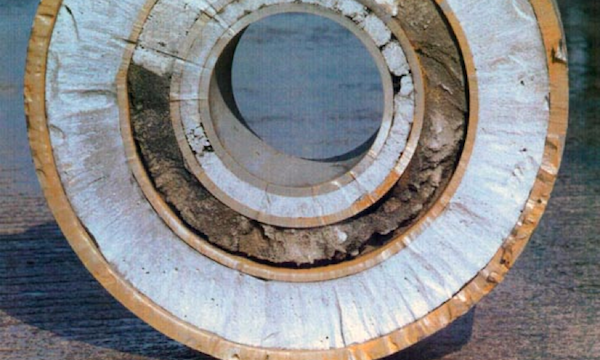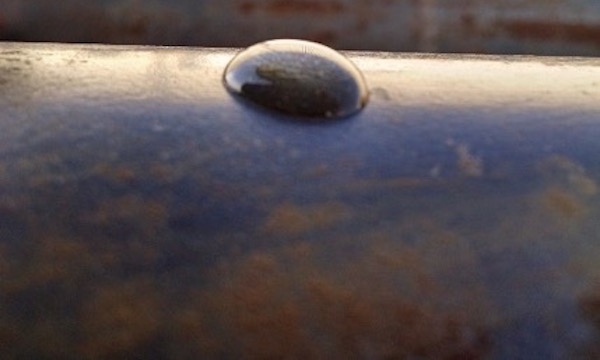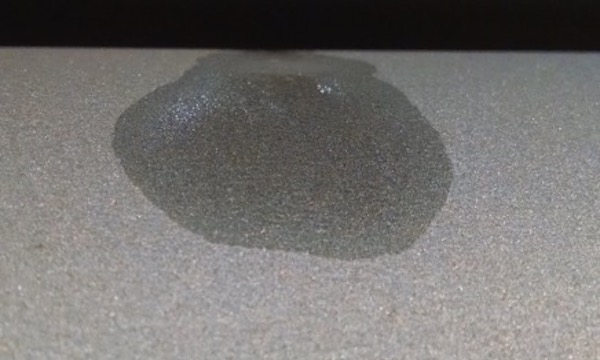SCIN Application
SCIN directly addresses the issue of steel hydrophobicity and steel-cement interfacial bond strength. By creating a super-hydrophilic surface, SCIN chemically reacts to Portland cement to create a more effective adhesion on steel pipes.
In addition, SCIN-treated steel significantly improves the accuracy of acoustic cement evaluation results, showing a consistent improvement in acoustic coupling between casing and cement.

Interfacial Bond Strength
Cement barriers provide zonal separation between well bore and casing pipe. Uniform cement-casing pipe interface is required, but often this bonding is disrupted for a variety of reasons.

Steel Hydrophobicity
Steel is naturally hydrophobic, with water droplet contact angles of 90 degrees or more. This hydrophobicity creates poor adhesion of water-based cement to steel or mill-varnished steel.

SCIN-Treated Steel
SCIN dramatically improves the wettability and adhesion of treated steel. In tests, the contact angle of water droplets was reduced to 20 degrees, improving the interfacial bond between cement and steel.